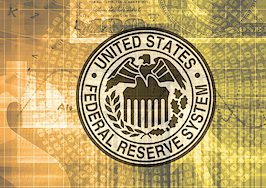Check Inman every day for the daily version of this market roundup.
Mortgage rates:
[graphiq id=”b2w6fmfIyNL” title=”30-Year Fixed Rate Mortgage Rates for the Past 6 Months” width=”600″ height=”400″ url=”https://w.graphiq.com/w/b2w6fmfIyNL” link=”http://mortgage-lenders.credio.com” link_text=”30-Year Fixed Rate Mortgage Rates for the Past 6 Months | Credio”]
[graphiq id=”2NvK9Bl9HIF” title=”15-Year Fixed Rate Mortgage Rates for the Past 6 Months” width=”600″ height=”400″ url=”https://w.graphiq.com/w/2NvK9Bl9HIF” link=”http://mortgage-lenders.credio.com” link_text=”15-Year Fixed Rate Mortgage Rates for the Past 6 Months | Credio”]
Home equity rates:
[graphiq id=”kPkTJrAnX5r” title=”Average Home Equity Loan Bank Rates by State” width=”600″ height=”465″ url=”https://w.graphiq.com/w/kPkTJrAnX5r” link=”http://mortgage-lenders.credio.com” link_text=”Average Home Equity Loan Bank Rates by State | Credio”]
[graphiq id=”dP0v3iYOnH” title=”Average Home Equity Loan Credit Union Rates by State” width=”600″ height=”465″ url=”https://w.graphiq.com/w/dP0v3iYOnH” link=”http://mortgage-lenders.credio.com” link_text=”Average Home Equity Loan Credit Union Rates by State | Credio”]
Friday, Oct. 16:
FNC August 2015 Residential Price Index:
- The index was up 5.5 percent year-over-year.
- Foreclosed and real estate-owned (REO) properties was 9.2 percent of all total existing home sales, down from 10.5 percent in August 2014.
- The median asking price discount among closed sales was 3.1 percent, up from 2.9 percent in June and July.

Thursday, Oct. 15:
Re/Max’s October 2015 housing report:
- September 2015 home sales were 8.6 percent lower than in August 2015 but 6.8 percent higher than September 2014.
- The median sales price for homes sold in September 2015 was $209,000.
- The months supply of inventory in September 2015 was 4.5; it was 4.9 in September 2014.

CoreLogic’s Mortgage Fraud Trends Report:
- There was an 8.9 percent year-over-year decrease in fraud risk as of the second quarter (Q2) of 2015.
- For the year ending in Q2 2015, the estimated value of applications with fraud or serious representations was $17.3 billion.
- During Q2 2015, about 0.67 percent of all mortgage applications contained indications of fraud.

RealtyTrac Foreclosure Market Report for Q3 and September 2015:
- A rise in the volume of bank repossessions is a major contributor to the overall increase in foreclosure filings.
- Metros that saw year-over-year increases are spread throughout the nation.
- California markets appear to be seeing the biggest reduced in foreclosure activity.

Wednesday, Oct. 14:
Mortgage Bankers Association’s Weekly Applications Survey:
- The Market Composite Index decreased 27.6 percent week-over-week.
- The refinance share of mortgage activity increased from 57.4 percent of total applications last week to 61.2 percent of total applications this week.
- The average contract interest rate for 30-year fixed-rate mortgages remained 3.99 percent, unchanged from last week. Points increased to 0.53 percent this week from 0.46 percent last week.
Tuesday, Oct. 13:
Quicken Loans’ September 2015 Home Price Perception Index:
- Homeowner estimates of home values were 2 percent higher than appraiser opinions in September.
- However, September was the first month that the gap narrowed since February 2015.
- Nationally, home values are rising, with a 3.11 year-over-year gain.

CoreLogic’s August 2015 foreclosure report:
- Foreclosure inventory declined by 25.2 percent year-over-year, and completed foreclosures declined by 20.1 percent year-over-year.
- The number of foreclosures nationwide decreased from 46,000 in August 2014 to 36,000 in August 2015.
- The national foreclosure inventory included approximately 1.2 percent of all homes with a mortgage compared with 1.6 percent in August 2014.

Email market updates to press@inman.com.








